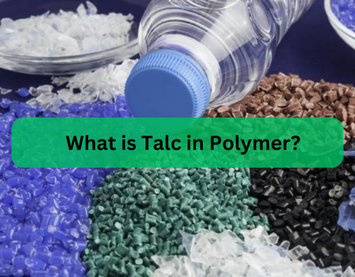- ISO 9001:2015 Certified Company
- +91-9672985402
- info@vasundharamicron.com
What is Talc in Polymer?

Does Plastic have Talc?
July 3, 2023
What Happens When You Mix Talc With Water?
July 17, 2023In the world of polymer manufacturing, the inclusion of additives plays a crucial role in achieving desired properties and performance characteristics. One such additive that has gained prominence in recent years is talc. As a trusted and renowned Best Polymer grade talc manufacturer, Vasundhara Micron understands the significance of talc in polymer formulations. In this blog post, we will delve into the nature of talc, its properties, and its diverse applications in polymer manufacturing.
Understanding Talc
Talc, scientifically known as hydrated magnesium silicate, is a naturally occurring mineral widely recognized for its softness, smoothness, and excellent thermal and chemical stability. It is composed of magnesium, silicon, and oxygen, making it an ideal candidate for various industrial applications, including polymer production.
Talc as an Additive in Polymer Manufacturing
Reinforcement and Filling: It serves as a reinforcing agent and filler in polymer formulations. Its lamellar structure, characterised by plate-like particles, enhances the stiffness, dimensional stability, and mechanical strength of the resulting polymer composites. By incorporating talc into polymers, manufacturers can achieve improved resistance to creep, better flexural modulus, and enhanced impact resistance.
Heat Resistance: Polymers often encounter elevated temperatures during processing or end-use applications. Its high thermal stability makes it an excellent choice for enhancing the heat resistance of polymers. It acts as a thermal barrier, dissipating and distributing heat across the composite material, thereby reducing the risk of thermal degradation.
Impact Modification: In industries where impact resistance is critical, such as automotive, construction, and packaging, talc proves invaluable. The addition of this mineral to polymer matrices enhances impact resistance by absorbing and dispersing energy upon impact, thus minimizing the risk of fractures and cracks. This property is particularly beneficial in applications where safety and durability are paramount.
Dimensional Stability: Its low coefficient of thermal expansion contributes to the dimensional stability of polymer products. It reduces the likelihood of warpage or deformation due to temperature variations, ensuring that the final products maintain their shape and structural integrity even in challenging environments.
Improved Processability: It acts as a processing aid during polymer manufacturing. Its lubricating properties facilitate the flow of polymer melt, enhancing mold filling and reducing processing defects such as sink marks, flow lines, and voids. This attribute is particularly advantageous in injection molding, extrusion, and blow molding processes.
Automotive Industry: Talc-reinforced polymers find extensive use in automotive components due to their lightweight nature, high impact resistance, and dimensional stability. Talc-filled polypropylene (PP) composites are commonly employed in interior trims, bumpers, and under-the-hood applications.
Packaging Industry: The packaging industry relies on talc-filled polymers to create robust and lightweight packaging materials. Its ability to improve impact resistance and stiffness makes it suitable for producing containers, caps, closures, and film applications.
Construction Materials: Talc-modified polymers contribute to the construction industry by providing durable and thermally stable materials. These materials find applications in pipes, fittings, profiles, and insulation systems, where talc enhances mechanical strength and weatherability.
Electrical and Electronics: The electrical and electronics sector benefits from talc-filled polymers in the production of housings, connectors, and insulating components. Talc's excellent thermal conductivity, electrical resistivity, and flame resistance make it an ideal choice for such applications.
Applications of Talc in Polymer Manufacturing
Conclusion
As evident from the diverse applications discussed above, talc plays a pivotal role in polymer manufacturing. Its unique combination of properties, including reinforcement, heat resistance, impact modification, dimensional stability, and improved processability, contribute to the enhanced performance of polymer composites. Vasundhara Micron recognizes the significance of talc in achieving superior product characteristics. By incorporating talc into polymer formulations, manufacturers can ensure the development of high-quality, high-performance materials suitable for a wide range of industries.



